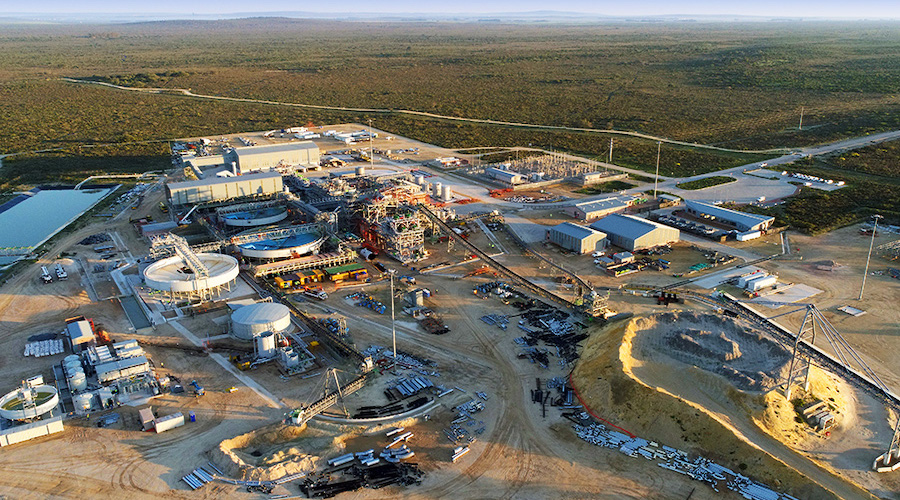From Coal Mines to Startup Labs – An African City’s Remarkable Tech Transformation
Nestled on the foot of the rolling Udi Hills, which offer a picturesque backdrop to the concrete jungle below, Enugu is a city that is quietly reinventing itself. The capital of the eponymous Enugu State in southeastern Nigeria, Enugu was once a thriving coal mining hub.
British colonial administrators founded the city in 1909 as a coal mining camp. Coal was extracted and exported through a purpose-built railway line to the coast. Flushed with revenue and job opportunities, Enugu rapidly grew from a sleepy village to a bustling mining and administrative town.
But the coal mining industry in Nigeria collapsed long before the global transition from fossil fuels gathered steam. The discovery of crude oil in commercial quantities in the neighbouring Niger Delta region in the late 1950s dealt a fatal blow to Enugu’s coal mining industry. Oil was seen as more lucrative and strategic by the central government, prompting it to gradually divest from the coal industry into oil exploration and production.
What followed were decades of sluggish economic growth as the city struggled to find new economic relevance in an increasingly oil-driven Nigerian economy. The various macroeconomic headwinds that have hampered the growth of Nigeria also did not spare it.
However, in recent times, Enugu seems to have rediscovered its purpose and ambition. From education to technology, the city is positioning itself to thrive in the modern economy.
An Infrastructural Rebirth
The state government is aggressively upgrading the city’s public infrastructure to facilitate private enterprise. New road constructions are transforming the cityscape, while plans to introduce modern bus terminals, a bus rapid transport system, and an intrastate rail network will ease public transportation and reduce the city’s carbon footprint.
Education is one of the areas that have witnessed massive investments. With more than 30 tertiary institutions located within and a few kilometers away from the city – including Nigeria’s first indigenous university, the University of Nigeria – Enugu aims to become an academic and knowledge-economy hub in Nigeria and West Africa.
From Coal City to Code City
Being a secondary city, Enugu has often been in the shadows of larger urban centers like Lagos and Abuja. Its new graduates and economically active population have historically migrated in droves in search of employment opportunities elsewhere. With innovations like AI revolutionizing industries and economies around the world, tech is an area that Enugu is betting on to stem and reverse this trend.
It hopes that it can capitalize on its wealth of young and educated talent, entrepreneurial culture, and improving digital infrastructure like high-speed internet penetration to stake a claim in the global tech race and create knowledge jobs. The city’s lower cost of living compared to Lagos and Abuja makes it an attractive destination for tech startups. It currently ranks 4th in startup ecosystem development in Nigeria, according to the Global Startup Ecosystem Index 2024.
Greenage Technologies, a company driving energy inclusion in Nigeria by manufacturing and distributing Nigerian-made solar energy equipment, and Xend Finance, a fintech that provides payment solutions for small businesses, are among the growing list of VC-backed startups that call Enugu home. Funding rounds led by the likes of Google, Binance, and All On, a Shell-backed impact investor, have injected millions of dollars into Enugu’s tech startup ecosystem.
Challenges of Building a Startup Ecosystem in an African Secondary City
But Enugu’s tech startup leadership ambition has faced significant hurdles. Building a startup in Enugu is still more challenging than it is in Lagos or Abuja. While there is no shortage of innovative ideas in the city, there is a shortage of supportive networks that will bring them to life. Like many other secondary cities in Africa, Enugu does not have the full complement of resources needed to sustain the growth of its tech startup scene.
Across the continent, economic resources and opportunities are often disproportionately concentrated in the primate cities. These are usually the economic or political capitals of their countries. Cities like Nairobi in Kenya, Cairo in Egypt, Abidjan in Cote d’Ivoire, Kigali in Rwanda, and Lagos and Abuja in Nigeria enjoy far greater access to capital, talent, and infrastructure than any other urban area in their countries, leading to wide regional disparities.
So, the cost of living may be comparatively lower in the city, but it lags behind in most other startup ecosystem enablers. Access to incubators, accelerators, and co-working spaces that offer mentorship, connections, visibility, and funding is particularly limited.
Niche businesses that offer specialized but critical services and extensive supply and distribution chains are also in short supply. All of these have left many startups in the city dependent on services from businesses and value chains in Lagos and Abuja to operate.
A Multipronged Approach
Making Enugu’s startup ecosystem largely self-sustaining is where the real work lies, and it requires synergy between the government – especially at the state level – and the private sector. The government must lead the charge by facilitating the creation of the enablers that it currently lacks.
Incentives like tax breaks, subsidized office spaces, and procurement contracts, along with innovative financing vehicles for local tech startups like government-backed privately managed venture capital funds, will motivate entrepreneurs and investors to see the city as a preferred investment destination. Policies that target the ease of doing business in the broader municipal economy will strengthen the local supply and distribution chains.
For the private sector, building a strong community and network of mentors and funders that can support local tech startups is a good place to start. Partnership and patronage to generate demand for their solutions and the establishment of corporate venture capital (CVC) initiatives are also essential.
The startups themselves must also play a role, especially by forging strategic partnerships and investing in marketing and publicity to boost their visibility and reduce information asymmetries. Integration with the broader Nigerian, African, and global economies is vital. This will help them to tap into a wider customer base, even whilst anchoring their operations in Enugu.
When properly pieced together, these and more strategies can pave the way for the emergence of Enugu’s very own unicorn in the next few years.

Chinedu George Nnawetanma is a development strategist working at the intersection of private sector development and local economic development (LED) in Africa. He is passionate about the empowerment of businesses and people to drive the accelerated, inclusive, and sustainable economic growth and development of the continent. He has designed and led advisory and financing initiatives that have improved access to capital, knowledge, market, and digital skills for thousands of SMEs, startups, and youths.
Share this content:














